University of Banja Luka
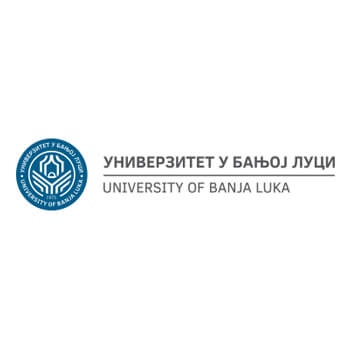
Founded: 1975
Address: Bulevar vojvode Petra Bojovica 1Ð - Banja Luka, Bosnia and Herzegovina
Phone: +387 51 321171
Address: Bulevar vojvode Petra Bojovica 1Ð - Banja Luka, Bosnia and Herzegovina
Phone: +387 51 321171
Here you find out University of Banja Luka complete information about fees, location, degree University of Banja Luka offers, number, website, and much more. University of Banja Luka is a leading university in Banja Luka - Bosnia and Herzegovina.
You can also find out jobs at University of Banja Luka for students, teachers, and professors. We also update the database for an internship at University of Banja Luka for students.
The University of Banja Luka, founded on November 7, 1975 and comprising of 17 faculties today, is the leading higher education institution in the Republic of Srpska and the second largest one in the whole of Bosnia and Herzegovina.
Since 2007, the University has been integrated, with the faculties functioning as organizational units.
It is managed by the Steering Board, Senate and ...Rector, who is assisted by the Vice-Rector for education and students’ affairs, Vice-Rector for scientific research and development, Vice-Rector for international and inter-university cooperation, and Vice-Rector for staff and material resources.
At the moment, there are 811 fully employed professors and teaching assistants, 342 professors working part-time, and 175 visiting professors, the administration of the University totaling 559 employees.
So far, the University has produced 31,500 graduates, 700 specialists, 1,150 MA/MSc and 600 PhD degree holders respectively, with 20,000 students currently enrolled at its study programmes.
Most faculties are situated in two separate campus sites near the banks of the River Vrbas, in the vicinity of downtown area. Each campus site is equipped with dormitories with accompanying canteens, sports courts, students’ clubs and University Computer Centre.
The University of Banja Luka disposes of all necessary facilities, from classrooms and amphitheatres, over reading rooms and libraries, to laboratories and computer rooms. The total classroom area is 16,000 m2, while the laboratories take up 10,000 m2. In most classrooms there are computers and over-head projectors, allowing for use of digital contents in class. As far as the computer rooms, there are 20 of them, all providing a 24-hour access to the Internet. In addition, the libraries provide their users with 185,000 titles and are subscribed to 75 journals.
University of Banja Luka is a member of the European University Association – EUA and is a signatory of the Magna Charta Universitatum. The University is a member of the International University Network for Academic and Research Cooperation, under the patronage of the La Sapienza University Science Park, Rome, Italy, the General Assembly of Interuniversity Centre for Research and Cooperation with Eastern and South-Eastern Europe (CIRCEOS), with headquarters at the University of Bari, Italy, UniAdrion universities network with headquarters in Ancona, Italy, EMUNI foundation with headquarters in Slovenia and the Agency for Francophone Universities (AUF).
University in Banja Luka was founded on November 7, 1975. Its foundation was preceded by the formation of a number of higher schools and faculties in this area. The first of them was the Faculty of Teacher Training formed in 1950. Faculty of Mechanical Engineering was founded in 1961, Higher School of Economics in 1969, and after that a number of satellite departments emerged from Sarajevo’s Faculties of Mechanical Engineering, Law and Economics. In the period of just four years all of those departments became independent faculties.
There were five faculties in the structure of the University at time of its foundation: Faculty of Electrical Engineering, Faculty of Technology, Faculty of Law and Faculty of Economics. The Faculty of Medicine was formed in 1978.
Prior to the formation of the University, 4.952 students attended faculties and schools of higher education in Banja Luka, and during the first year of University’s existence, 2.356 new students were enrolled.
In time the number of students increased, as well as the number of qualified teaching and scientific staff. Improving the resources of laboratories, workshops and libraries was of great importance, and scientific research and practical work and their connection with the economy gradually came to life.
In the school year of 1987/88, the curriculums and structure of courses have been innovated and changed to meet the modern standards. Personnel structure has been improved on some faculties and higher schools, and a new legal provision has been introduced that all teachers must hold a Ph.D.
University in Banja Luka did not halt their normal operations even during The Bosnian War that took place from 1992 until 1995. On the contrary, new faculties and departments have been formed, i.e. new study programs. In the 1992, two new faculties were formed – Faculty of Agriculture and Forestry and in 1994, Faculty of Philosophy with 11 departments (study programs). In the year 1995, Faculty of Architecture and Civil Engineering was formed followed by the Faculty of Natural Sciences and Mathematics in 1996.
Teaching and scientific activities of the faculties were realized through graduate and postgraduate studies. The faculties worked on existing and started new research projects, and have successfully realized a few prominent scientific and professional aggregates.
In parallel with the teaching and scientific work, a rich international and Inter-University cooperation evolved. Since its inception to this day, the University signed around two hundred contracts on mutual cooperation with academic and scientific institutions from Republic of Srpska, Federation of Bosnia and Herzegovina as well as other countries like: Bulgaria, Italia, Japan, Macedonia, Norway, Poland, Russia, Slovenia, Serbia, Thailand, Ukraine, Finland, France, Croatia, Montenegro, USA, Germany, Portugal, Slovakia, Turkey, Romania, Spain and others.
Starting with the school year of 2007/08, the University of Banja Luka implemented The Bologna Process in all study programs even though some faculties implemented this process sooner. The three cycle system has been introduced (bachelor/master/doctorate) and the ECTS system of valuation of courses and total workload of students, as well the principle of yearly student workload of 60 ECTS points.
Following the grouping of study fields, the University in Banja Luka made a strategic decision to group all subjects (courses, modules) in more strict fields of studies regardless of the Faculty/Academy where they are being attended. After that, individual science/art studies have been registered within respective Faculties/Academies.
Since January 2008, the University in Banja Luka has been integrated with faculties as its organizational units.
Corresponding to the needs of the labor market and the interests of the students, in 2009, three new faculties as part of the University were formed: Faculty of Philology, Faculty of Political Sciences and Faculty of Mining. In 2012, Higher School of Interior Business became a member of the University.
In 2013, University in Banja Luka was accredited and registered into the Register of Institutions of Higher Education led by the Institution for Development of Higher Education and Quality Assurance of Bosnia and Herzegovina.
You can also find out jobs at University of Banja Luka for students, teachers, and professors. We also update the database for an internship at University of Banja Luka for students.
The University of Banja Luka, founded on November 7, 1975 and comprising of 17 faculties today, is the leading higher education institution in the Republic of Srpska and the second largest one in the whole of Bosnia and Herzegovina.
Since 2007, the University has been integrated, with the faculties functioning as organizational units.
It is managed by the Steering Board, Senate and ...Rector, who is assisted by the Vice-Rector for education and students’ affairs, Vice-Rector for scientific research and development, Vice-Rector for international and inter-university cooperation, and Vice-Rector for staff and material resources.
At the moment, there are 811 fully employed professors and teaching assistants, 342 professors working part-time, and 175 visiting professors, the administration of the University totaling 559 employees.
So far, the University has produced 31,500 graduates, 700 specialists, 1,150 MA/MSc and 600 PhD degree holders respectively, with 20,000 students currently enrolled at its study programmes.
Most faculties are situated in two separate campus sites near the banks of the River Vrbas, in the vicinity of downtown area. Each campus site is equipped with dormitories with accompanying canteens, sports courts, students’ clubs and University Computer Centre.
The University of Banja Luka disposes of all necessary facilities, from classrooms and amphitheatres, over reading rooms and libraries, to laboratories and computer rooms. The total classroom area is 16,000 m2, while the laboratories take up 10,000 m2. In most classrooms there are computers and over-head projectors, allowing for use of digital contents in class. As far as the computer rooms, there are 20 of them, all providing a 24-hour access to the Internet. In addition, the libraries provide their users with 185,000 titles and are subscribed to 75 journals.
University of Banja Luka is a member of the European University Association – EUA and is a signatory of the Magna Charta Universitatum. The University is a member of the International University Network for Academic and Research Cooperation, under the patronage of the La Sapienza University Science Park, Rome, Italy, the General Assembly of Interuniversity Centre for Research and Cooperation with Eastern and South-Eastern Europe (CIRCEOS), with headquarters at the University of Bari, Italy, UniAdrion universities network with headquarters in Ancona, Italy, EMUNI foundation with headquarters in Slovenia and the Agency for Francophone Universities (AUF).
University in Banja Luka was founded on November 7, 1975. Its foundation was preceded by the formation of a number of higher schools and faculties in this area. The first of them was the Faculty of Teacher Training formed in 1950. Faculty of Mechanical Engineering was founded in 1961, Higher School of Economics in 1969, and after that a number of satellite departments emerged from Sarajevo’s Faculties of Mechanical Engineering, Law and Economics. In the period of just four years all of those departments became independent faculties.
There were five faculties in the structure of the University at time of its foundation: Faculty of Electrical Engineering, Faculty of Technology, Faculty of Law and Faculty of Economics. The Faculty of Medicine was formed in 1978.
Prior to the formation of the University, 4.952 students attended faculties and schools of higher education in Banja Luka, and during the first year of University’s existence, 2.356 new students were enrolled.
In time the number of students increased, as well as the number of qualified teaching and scientific staff. Improving the resources of laboratories, workshops and libraries was of great importance, and scientific research and practical work and their connection with the economy gradually came to life.
In the school year of 1987/88, the curriculums and structure of courses have been innovated and changed to meet the modern standards. Personnel structure has been improved on some faculties and higher schools, and a new legal provision has been introduced that all teachers must hold a Ph.D.
University in Banja Luka did not halt their normal operations even during The Bosnian War that took place from 1992 until 1995. On the contrary, new faculties and departments have been formed, i.e. new study programs. In the 1992, two new faculties were formed – Faculty of Agriculture and Forestry and in 1994, Faculty of Philosophy with 11 departments (study programs). In the year 1995, Faculty of Architecture and Civil Engineering was formed followed by the Faculty of Natural Sciences and Mathematics in 1996.
Teaching and scientific activities of the faculties were realized through graduate and postgraduate studies. The faculties worked on existing and started new research projects, and have successfully realized a few prominent scientific and professional aggregates.
In parallel with the teaching and scientific work, a rich international and Inter-University cooperation evolved. Since its inception to this day, the University signed around two hundred contracts on mutual cooperation with academic and scientific institutions from Republic of Srpska, Federation of Bosnia and Herzegovina as well as other countries like: Bulgaria, Italia, Japan, Macedonia, Norway, Poland, Russia, Slovenia, Serbia, Thailand, Ukraine, Finland, France, Croatia, Montenegro, USA, Germany, Portugal, Slovakia, Turkey, Romania, Spain and others.
Starting with the school year of 2007/08, the University of Banja Luka implemented The Bologna Process in all study programs even though some faculties implemented this process sooner. The three cycle system has been introduced (bachelor/master/doctorate) and the ECTS system of valuation of courses and total workload of students, as well the principle of yearly student workload of 60 ECTS points.
Following the grouping of study fields, the University in Banja Luka made a strategic decision to group all subjects (courses, modules) in more strict fields of studies regardless of the Faculty/Academy where they are being attended. After that, individual science/art studies have been registered within respective Faculties/Academies.
Since January 2008, the University in Banja Luka has been integrated with faculties as its organizational units.
Corresponding to the needs of the labor market and the interests of the students, in 2009, three new faculties as part of the University were formed: Faculty of Philology, Faculty of Political Sciences and Faculty of Mining. In 2012, Higher School of Interior Business became a member of the University.
In 2013, University in Banja Luka was accredited and registered into the Register of Institutions of Higher Education led by the Institution for Development of Higher Education and Quality Assurance of Bosnia and Herzegovina.
Read More
Details:
LeaderShip: Rector: Prof. Radoslav Gajanin
Fees:
Time:
Phone Number: +387 51 321171
City: Banja Luka
Fees:
Time:
Phone Number: +387 51 321171
City: Banja Luka
Timing:
Country: Bosnia and Herzegovina
Staff: 1887
Website: http://www.unibl.org
Country: Bosnia and Herzegovina
Staff: 1887
Website: http://www.unibl.org
Subjects:
Video:
Jobs in University of Banja Luka
Currently, there is no job opening in University of Banja Luka as per our database.

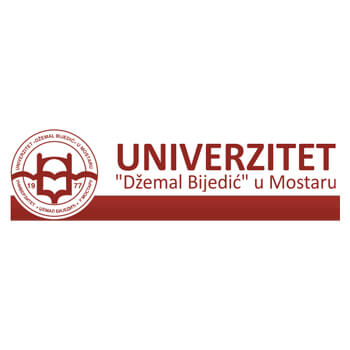
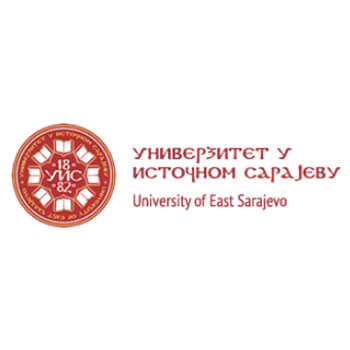
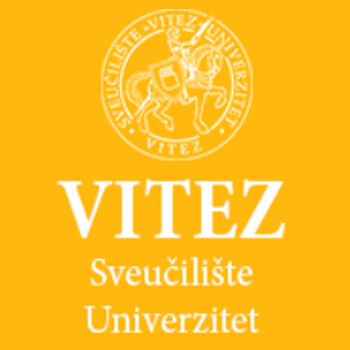
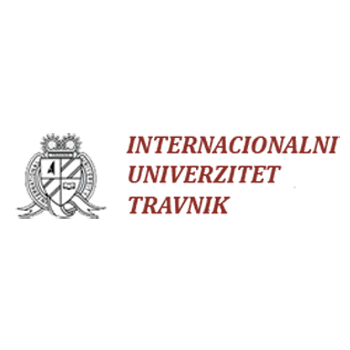
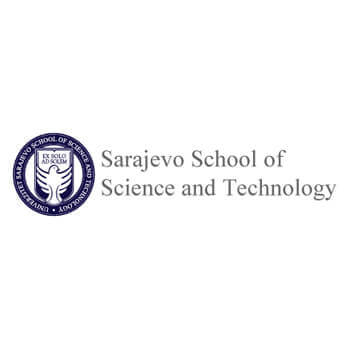
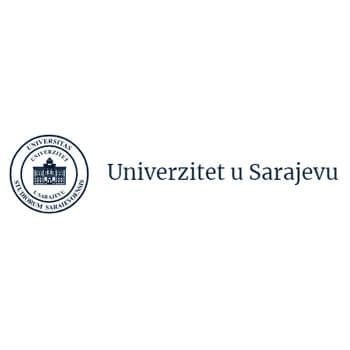
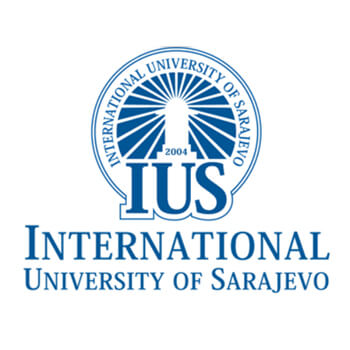
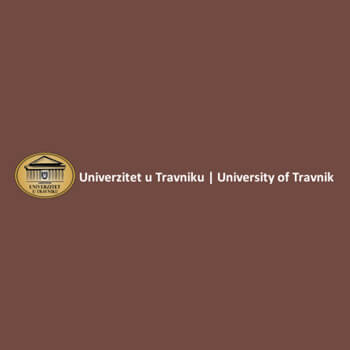










Leave a Reply